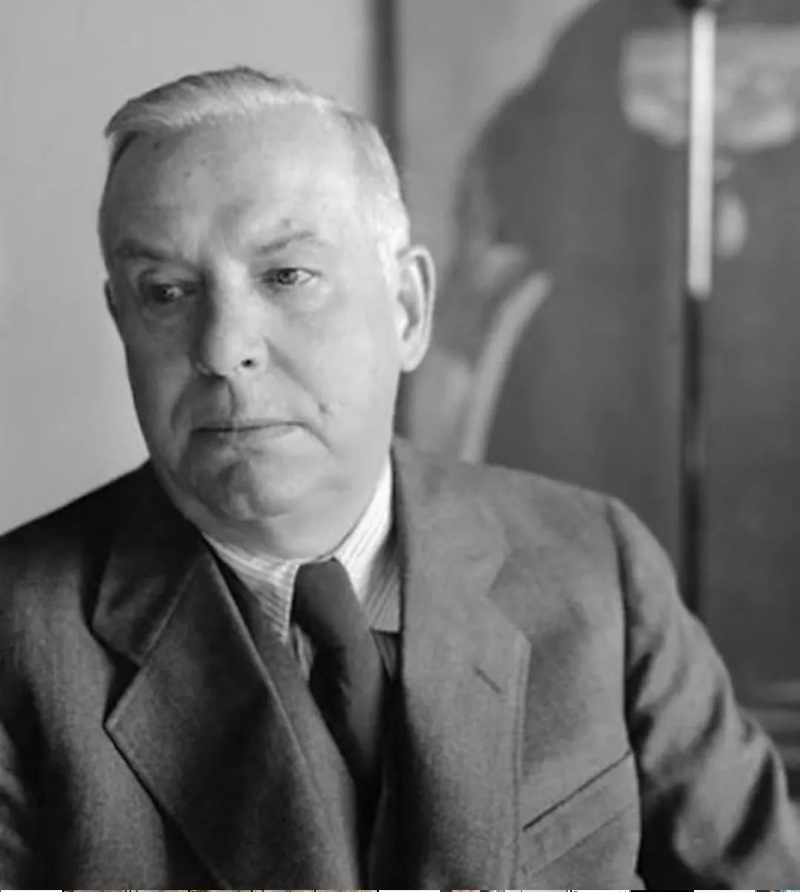Ardakh Nurgaz. On Poetry by W.Stevens

In poetry, content and form are essentially the same things. They are interwoven in the realm of imagination. It is acknowledged only because of the dissimilarity, sometimes as the content, sometimes as the form. It recognizes a persona in a particular communication structure of self/other. Following that are cognition and aesthetic tendency. A qualitative change will occur in this process. The aesthetic tendency is not a sum or a thought. It's the bedrock of thought. That's why everyone has their unique aesthetic tendencies. We may examine it from a purely aesthetic standpoint.
Initially, the aesthetic tendency denotes a creative person confronting himself, being immanent, the occurrence of a shock in consciousness, or the formation of a given order, system, and setting the groundwork for its modification. If there is consciousness, it is formed of ceaseless movement, order, and disruption of order. The world is both united and fractured.
In our world, cognition, recognition, and aesthetic tendency all have a place. However, the significance of aesthetic tendency in creation is unique. Poet Robert Lowell discusses Wallace Stevens' poem "Esthetique Du Mal" and states that "the theme of the poem is how the imagination reacts when faced with tragedy and cruelty." Several terms in the above sentence deserve particular focus. The term "imagination" here exclusively relates to the realm of consciousness. The poetry here implies that it is related to pure consciousness. "React" refers to the conscious movement caused by cruelty and tragedy. Unlike physical activity, consciousness has distinct qualities. It does not ink Hegel's dialectical concept. Action in consciousness refers to an act that occurs solely inside the persona. It has a direct relationship with aesthetic tendency. It appears in the poem's text as a monologue. However, it is not like a monologue in traditional poetry or theater. A lyrical monologue, like a monologue in conventional literature, differs from a character's monologue in appearance since it is aimed at the reader (spectator). The mind of the subject or discipline does not play a critical part in such a modern monologue. The emphasis is on movement and action. As a result, the subject develops a multi-based, fragmented characteristic inside unity. The author, the lyrical characters, and even other personas are all mirrored in the poem. Clashes cause noise, generate a voice to speak, and initiate a discussion. The content of this poem stands out as an expression of the power of imagination in several facets. Aesthetic tendency determines its characteristics.
This is where the poem "Esthetique Du Mal" becomes peculiar. We may term it "polyphonic poetry." The polyphonic framework includes borrowing, re-writing, subversive revision, and overturn. As a result, the text undergoes a qualitative shift: shape-shifting, metamorphosis, and transmutation are introduced. The poem gets more multilayered and hybrid as impersonality and dehumanization become more prominent. Language reflects its natural nature in the text, which is not subject to logocentrism. In this approach, the poet discovers his poetic language and reaches truth in the poem. These appear frequently in W. Stevens' poetry.
P.S.
We learned about the death of poet Louise Gluck on October 13. The revitalized form of polyphony is frequently shown in L. Gluck's poetry. The poet's death had a profound impact on me. His poems flashed before my eyes. I instantly felt inspired to write a poem. I finished the poem in a matter of days and enjoyed it. The title of my latest poem is "Geographic Map." The creation of poetry is fraught with mystery.
30/10/2023
Translated by Bayan Ardakh
Ardakh Nurgaz. Returning the language to the matter
https://www.thebilge.kz/e/action/ShowInfo.php?classid=33&id=3944
Wallace Stevens. Sunday Morning
https://www.thebilge.kz/e/action/ShowInfo.php?classid=33&id=3922
Wallace Stevens
https://www.thebilge.kz/e/action/ShowInfo.php?classid=33&id=3645
Ardakh Nurgaz. A poem about Y.Brodsky
https://www.thebilge.kz/e/action/ShowInfo.php?classid=33&id=3637
Ardakh Nurgaz. Modern lyric poetry
https://www.thebilge.kz/e/action/ShowInfo.php?classid=33&id=3742
